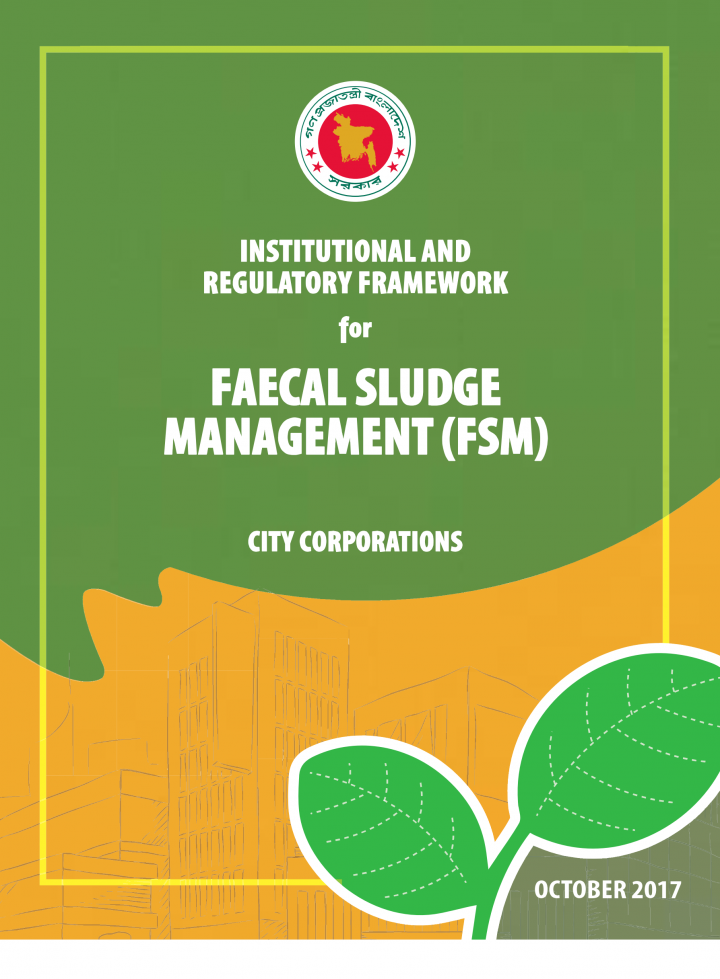Institutional and Regulatory Framework for Faecal Sludge Management (IRF-FSM)
Working Committee formed by the Local Government Division, Ministry of Local Government, Rural Development and Co-operatives (2017)

Published in: 2017
Pages: 24
Publisher:
Policy Support Branch (PSB) Local Government Division Ministry of Local Government, Rural Development and Co-operatives Government of the People's Republic of Bangladesh
Author:
Working Committee formed by the Local Government Division, Ministry of Local Government, Rural Development and Co-operatives
Uploaded by:
SuSanA secretariat
Partner profile:
Deutsche Gesellschaft für Internationale Zusammenarbeit (GIZ) GmbH
1696 Views
89 Downloads
In Bangladesh, on-site sanitation is prevalent throughout the country except for a small portion in Dhaka city, and the huge quantity of faecal sludge generated in septic tanks and pits (of pit/ pour-flush latrines) is inaptly managed. Lack of Faecal Sludge Management (FSM) services is causing severe environmental pollution, particularly in urban areas, affecting both public health and economy. Apart from Dhaka North and Dhaka South City Corporations, currently there are 9 more City Corporations in the country namely Chittagong, Rajshahi, Khulna, Barisal, Sylhet, Rangpur, Comilla, Narayanganj and Gazipur. According to Local Government (City Corporation) Act 2009, the Government of Bangladesh may establish new city corporations by transforming existing Paurashava towns considering factors that include, among others, existing population, population density, local income source, economic importance, potentials for infrastructure development and expansions, existing Paurashava income and public opinion.
All these 9 City Corporation areas completely depend on on-site sanitation system, which primarily include septic tank system, and different forms of pit latrines. The middle- and high-income areas of the city are mostly covered by septic tank system (consisting of septic and soakage pit). However, with increasing population density, high level of water use and wastewater generation, the septic tanks are unable to remove solids from wastewater effectively and getting filled quickly; the soakage pits are unable to drain the huge volumes of septic tank effluent into the subsurface, and thus overflowing of septic tanks and soakage pits are common.
Bibliographic information
Working Committee formed by the Local Government Division, Ministry of Local Government, Rural Development and Co-operatives (2017). Institutional and Regulatory Framework for Faecal Sludge Management (IRF-FSM). Policy Support Branch (PSB) Local Government Division Ministry of Local Government, Rural Development and Co-operatives Government of the People's Republic of Bangladesh
Filter tags
East Asia & Pacific English Faecal sludge treatment processes Guidelines and manuals Import to Sanitation Workers Platform














